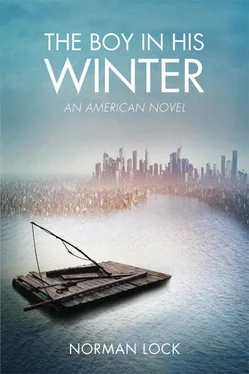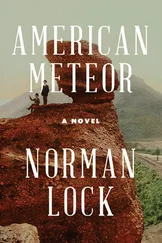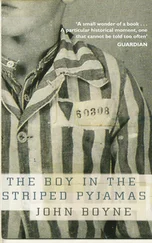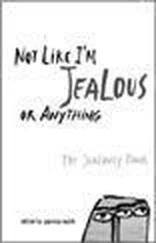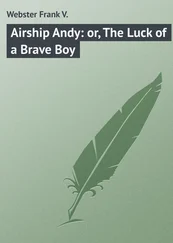Hunting for rivers, I happened on a map site called Minkowski—.org or.net — I don’t remember which, and it doesn’t matter, because it proved to be a phantom of the Internet: there one day and gone the next. I used it to look at the Mississippi at Hannibal and — magnifying the river — the town came into view as it had been in the past. My past. I saw Hannibal as it had been in 1835! Muff Potter’s shack and Pap’s squatting on the mud, Marie Laveau’s place in the pine woods, houses belonging to Miss Watson and the Widow Douglas, Aunt Polly, Judge Thatcher, the Phelpses, and the Wilkses, the jailhouse, circulating library, church, schoolhouse, the granite works and the sawmill, the square with the granite monument to the War of Independence, which Tom and I had desecrated with broken eggs the night before Halloween — my last in town.
You say you don’t believe it?
Haven’t you learned by now how fantastic a business it is to be alive? Haven’t I told you even more wonderful and strange things than this?
Restless, I walked past Euclid Park, down Colorado to Ocean Avenue and the pier. I stood at its end, looking out to sea, at the lights trembling in the darkness. I remembered a vanished night on the Hooghly River when the searchlights had swept the black water for bodies of the floating dead. Squinting the way I did when I wanted to bring the invisible into view, I thought I saw Tom Sawyer, Jim, and Huck Finn, like bundles on the water, navigating silently for home, according to hydrology. The carrousel was turning musically behind me on its axis, making an eternal figure in the night as surely as the wheeling stars. The time had come round for me to go home.
AND SO I CAME TO BE, ONCE MORE, in Hannibal after a 235-year absence. The year was not 1835. The Web site, fugitive as it had been, was not a time machine. It couldn’t restore or reprise the past. Its gift was one of retrospection — for an old man, a greater marvel. For old men — and women, too, for all I know of them — the glance is always backward. What is there to see ahead, except for the unmentionable destination? Unless the Widow Douglas had been right and is, at this moment, shaking a tambourine in heaven — unlike that harridan Miss Watson, who’s in the oven, broiling.
Can you guess what I did first on the afternoon of my arrival? No? I bought this — my corncob pipe. I’m forbidden to smoke it. My heart, you know. But I suckle it, tasting, like a child the milk of its mother’s breast, a rich residue of tobacco tar. I intend to have it burned with me: I’m to be cremated — it’s written in my will — and my ashes put into the Mississippi. A gorgeous joke! And my final escape from destiny, in that Twain would have had his Huck buried in consecrated ground, most likely in the Hannibal Cemetery, with a nicely chiseled stone recording the opening and closing parentheses of a normal human life. Old ironist and sinner, Twain might have installed a stone angel to weep its rust-colored tears over me, to irritate Hannibal’s self-righteous folk, who considered me a nuisance and a damned soul.
Before I arrived on this chaise longue, a skinny octogenarian in bathrobe and slippers, I took my revenge — twice daily, Tuesday through Sunday — playing the role of Mark Twain, river pilot and raconteur, at the Hannibal Riverside Amusement Park. Oh, how I relished it! Can you imagine me, made up and dressed to look like him as he was when he, too, got to be old? I lived for the two hours, six times each week, when I piloted a miniature steamboat — preposterous thing! — a half league downriver and back, telling stories of Tom and Jim and Huck to passengers who seemed more interested in the ducks than in what I had to say. But I didn’t care. I amused myself by playacting my nemesis, making him look ridiculous; and the stories I told were mine. Who was to know? Few people in the 2070s had read The Adventures of Huckleberry Finn. Have you? The fun went on for four years and a little more, until I crashed and sank The Mark Twain, as that silly tin-pot steamboat was called. I steered her into a snag and tore her bottom to flinders. The sun was in my eyes, and my eyes, overcast by cataracts, weren’t much use to me anymore. I guess I’d seen enough for one lifetime — for three or four lifetimes, as it happens.
That cloud, high above the river — see it? It’s the very same one that flew over my childhood.
This seems a good place for me to stop before lighting out for the Territory. I’ve had my say, and I’ve packed this book with life, knowing full well that life is always elsewhere.
You want to know how to finish this comedy — with what parting words?
With the same ones Mark Twain used to finish his, damn him!
THE END, YOURS TRULY, HUCK FINN.
DURING NEARLY FORTY-FIVE YEARS OF WRITING, I have been lucky to find many who have been kind to it and to me — enough, doubtless, to crowd this page with names. In the past, I have resisted the temptation to acknowledge friends and mentors, en masse, afraid to leave one or another out, because of my forgetfulness. But this seems a good time to try my hand at a comprehensive gratitude. So thanks — to my mother, who showed me the unmatched pleasure of reading, and to Mildred Osler, an English teacher who, in 1967, while students rampaged in the hall, stood, with diminutive frame but indomitable will, against the wall and recited from a novel by Thomas Hardy. My thanks to Philip Roth, who taught me how to read a story (if I remember rightly, we read, among other novels, The Adventures of Huckleberry Finn ) and, by his example, how to behave well toward others. Thanks, also, to poets Daniel Hoffman and Phillip Booth and novelists Jerre Mangione and George P. Elliott, who treated a young man like the writer he wished to be, but wasn’t yet. I’ve profited by the goodwill of friends like Gordon Lish, Marco Knauff, Brian Evenson, Faruk Ulay, Kate Bernheimer, Dawn Raffel, John Madera, Peter Markus, Tobias Carroll, Ed Renn, Dave Moore, and my persevering theatrical agent, Per Lauke. I’ve enjoyed the attentions of many editors — chief among them: George Plimpton ( The Paris Review ), Stephen Donadio and Carolyn Kuebler ( New England Review ), Celia Johnson and Maria Gagliano ( Slice ), Lee Chapman ( First Intensity ), Vincent Standley (3 rdbed ), Deron Bauman and Cooper Renner ( elimae ), Robley Wilson ( The North American Review ), Sven Birkerts and William Pierce ( AGNI ), Matt Bell ( The Collagist ), John Hennessy and Jennifer Acker ( The Common ), Richard Peabody ( Gargoyle ), Alice Whittenburg and G.S. Evans ( Café Irreal ), and Sebnem Basimi Holzer ( Visual Artbeat ). I’ve been fortunate in having devoted, selfless publishers like Kathryn Rantala (Ravenna Press), Eugene Lim (Ellipsis Press), Tod Thilleman (Spuyten Duyvil), Derek White (Calamari Press), R. M. Berry (FC2), J. A. Tyler (Mud Luscious Press), Christopher Gould (Broadway Play Publishing), and, on the happy occasion of The Boy in His Winter and Love Among the Particles, my estimable publisher, Erika Goldman, her Bellevue Literary Press team, Adam Beaudoin, Leslie Hodgkins, and Molly Mikolowski, the press’s meticulous copyeditor, Carol Edwards, as well as the painstaking Joe Gannon. I gratefully acknowledge a debt to the National Endowment for the Arts, the Pennsylvania Council on the Arts, and, doubly, to the New Jersey Council on the Arts. And, lastly, I offer gratitude and love to Helen — for four decades my wife and friend.

The author is grateful to The Collagist, Construction Magazine, and Slice Magazine for publishing an excerpt from this novel.
Читать дальше
